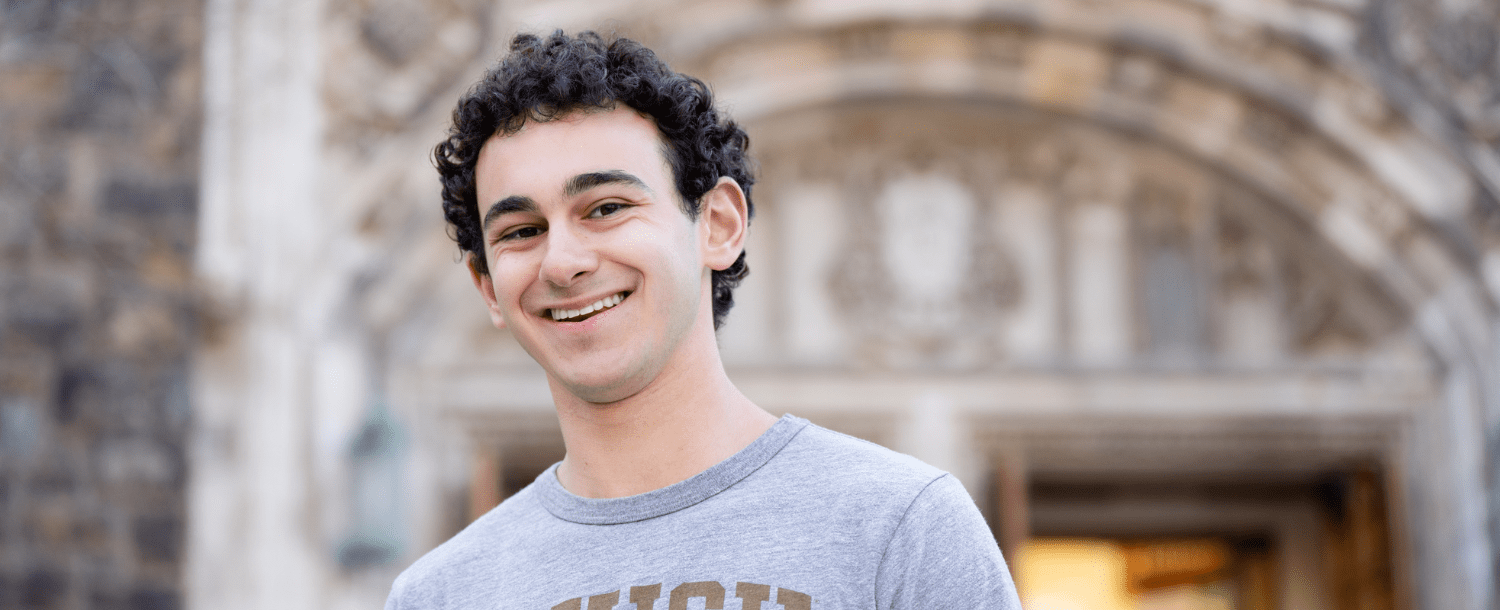My experience at Lehigh has fostered both independent thinking and a strong ability to solve problems through collaboration.
Q: What is one thing you would want a prospective student to know about Lehigh?
A: I hope prospective students recognize how close-knit the Lehigh community is, among both students and faculty. With a wide range of welcoming clubs and projects that are easy to join, it's also incredibly easy to connect with professors and faculty members. One of Lehigh’s greatest strengths is how quickly you can immerse yourself in vibrant social circles, cutting-edge research, academic opportunities, and even global experiences.
Q: How has Lehigh prepared you to take on tomorrow’s challenges?
A: My experience at Lehigh has fostered both independent thinking and a strong ability to solve problems through collaboration. Especially in the College of Engineering, I’ve found that classes go far beyond textbook learning, incorporating hands-on group projects that address real-world challenges. Outside the classroom, numerous extracurriculars focus on making a meaningful impact both on campus and in the greater Bethlehem community.
Q: Through Lehigh’s Global Social Impact Fellowship (GSIF) you work as part of a research group called SicklED. Can you tell us about this experience and the research that you are doing?
A: Academically and professionally, SicklED has been the most transformative influence on both my worldview and my future aspirations. The project—a research initiative focused on developing a low-cost, context-appropriate diagnostic device for detecting sickle cell disease in low-resource settings—has centered its efforts on a case study in Sierra Leone. Unlike many traditional research labs, SicklED emphasizes fieldwork and stakeholder collaboration as core components of its process.
Over the past two summers, I’ve had the opportunity to travel to Sierra Leone with the team, immersing myself in some of the most pressing challenges in global health. While the technical lab skills and engineering concepts I’ve gained have been incredibly valuable, the social, teamwork, and business skills I’ve developed through fieldwork have been equally, if not more impactful. This experience has reshaped how I view bioengineering; not just as a scientific discipline, but as a tool for meaningful, human-centered impact. It’s also helped me better understand how I contribute within teams and how I can continue to grow as a collaborator in solving tomorrow’s challenges.
Q: Where have you found support and mentorship at Lehigh? How has it shaped your experience?
A: Academically, I have found a lot of support from my advisors and also the principal investigators involved with my research. With lots of experience behind them, they can easily recommend classes, graduate programs and research areas of interest. However, I have also found that virtually any Lehigh professor is extremely approachable, and if there is a certain faculty member who has niche knowledge about a certain subject, their doors are always open, even if you have never met before.
I’ve also found incredible mentorship and support through my fraternity. Joining provided me with a strong, multi-grade community and meaningful friendships with older members who had recently navigated the same experiences I was facing. Their guidance and camaraderie were especially helpful as I adjusted to life at Lehigh, offering both practical advice and a sense of belonging.
Q: How does the Integrated Degree in Engineering, Arts, and Sciences (IDEAS) program help you to learn to solve problems across disciplines?
A: The IDEAS program has helped me step back from immediate tasks and approach problems from a broader, more thoughtful perspective. Relying solely on an engineering point of view can sometimes lead to getting lost in the technical details, forgetting that, at the core, we’re solving problems that impact real people. Through IDEAS, I’ve been able to explore the social and human dimensions behind these challenges, while my Arts and Sciences courses have introduced alternative solutions that don’t always require a scientific breakthrough. Together, these interdisciplinary mindsets have become essential tools in how I approach problem-solving.
Q: What is your favorite thing about Lehigh?
A: Over the past three and a half years, it’s been incredibly easy to find groups I genuinely connect with and professors who are not only approachable but also genuinely invested in my questions and growth. The only real barrier to connecting with people on campus is simply having the courage to say hello.
And while I hadn’t heard much about Bethlehem before coming to Lehigh, it quickly started to feel like home. Whether it’s walking down 4th Street to explore local restaurants with friends or watching the sunset from a backyard on Hillside Avenue, those moments have truly defined my college experience. Places stay open late, people are always around, and there's an energy here that makes it such a fun and vibrant place to be a student.
Q: Where is your favorite study spot or place to relax on campus?
A: I love studying on the 6th floor, quiet side of E.W. Fairchild-Martindale Library (FML), since you can overlook either all of campus or all of Bethlehem. Also, the 3rd floor deck at Psi Upsilon's Chapter house is a great place to relax, with lots of sunlight and a great view of campus.


